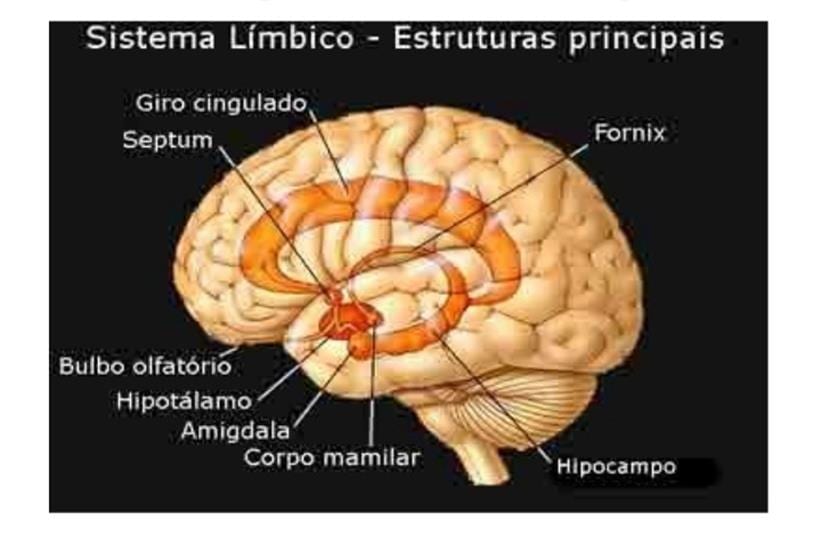
According to an interesting study published in the journal «Sciencie daily»And carried out in the University of California, the brain structure that governs our emotions could be inherited from mothers to daughters. Now, does this mean that because we are women we are going to suffer or face life in the same way that our mothers did? Does this study mean that if our mothers suffered from depression, we too will have to overcome these complex emotional processes?
Not necessarily. As we already know, in matters of biology, medicine and psychiatry, nothing correlates 100%, and for this reason, we must remember an essential word "predisposition". There are chances, indeed, genetics orchestrates many of our attributes in this way, but in turn, factors such as our social and personal contexts or our own coping strategies that we develop ourselves, will allow us to face life in another way. Daughters are not copies of their mothers, but they do maintain an invisible, lasting and complex bond that we want to talk to you about in «Madres Hoy».
Our emotions, minefields in the brain structure between mothers and daughters
An image that many girls can remember of their mothers is that of a dimly lit room, where a young woman tries to calm her migraine or drowns her tears looking for a moment of privacy, where she can facilitate her release from the pressures of life.. According to WHO (World Health Organization) depression affects women to a greater degree, to the point that as some explain to us studies, it is expected that in 2030 it will be the main cause of temporary disability.
So, those images that many girls have seen their mothers trying to overcome and face the black holes of depression, is something that, in turn, can also be latent in their brain structures, and not for the simple fact of having witnessed these vital moments, but because genetics and different brain structures have shaped it like this between one generation or another.
Let's see more details.
The limbic system, craftsman of our emotions

The limbic system is a brain structure that regulates our emotional stimuli, and which, in turn, is related to fascinating areas and brain bodies such as the hippocampus, related to memory, or with the amygdala, responsible for processing and recognizing more basic emotions and instinctual, such as fear or anger.
These magical structures, as well as keys to becoming what we are "purely emotional people" whether we like it or not, actually share many similarities between mothers and daughters:
- According to the psychiatrist Fumiko hoeft, specialist in the world of children and adolescents, professor at the University of California in San Francisco and director of this study, It was observed through MRI that all these brain circuits associated with emotions are inherited from mothers to daughters. That is, they have a similar chemical activity, are activated by the same stimuli and react in almost the same way.
Depression, a complex bond between mothers and daughters
There is one aspect that we must take into account. Depression is still a "taboo" aspect in our society. At the workplace level, it is easy to say that we have the flu, that we are going to be operated on for an aneurysm or even that we have been diagnosed with cancer. There is instant closeness, understanding ...
Now, when someone is on sick leave due to depression, they deal with it differently. It looks different. No one chooses his illness, no one wants to "rip" himself off from the rumor of life, of your responsibilities to start a personal battle with medications and therapies. And it is even more complex to explain to a child why one of their parents is somewhat more off or off, and why they need more hugs and support.

Depression has a genetic component whether we like it or not, and there are higher chances of developing it if our mother has suffered from it. However, let us specify a little more the following aspects.
- If our mother suffered or suffers from depression, there is no 100% correlation that we will suffer it.
- It means that in the face of a specific situation throughout our life cycle, our brain, our limbic system will not be able to react as effectively as it should. because we have inherited the same biochemical patterns as our mothers' brains.
- Depression is a chemical mismatchThat's right, a neurotransmitter fluctuation, where norepinephrine, epinephrine, and dopamine don't work as they should, taking away hope, dulling our spirits, and making us helpless.
- Now, despite this genetic component, factors such as our education, the social context in which we have lived, friends, reference people and those own strategies that each of us end up developing. Thanks to resilience, they can provide us with resources that our mothers did not have or did not know about..
The birth and upbringing

In "Madres Hoy» We have already talked to you about the need to attend to different aspects related to childbirth. The way we got into the worldFor example, it can leave an imprint on that immature but terribly receptive brain to emotions like stress and fear.
To take care of that delicate emotional world of our daughters, as well as of our sons, it is necessary that we take these aspects into account.
- If you have gone through a depression and have overcome it, understand that something in you has changed. You are stronger, you have faced your demons and you have clung tightly to life because you know that next to you, there are your sons, your daughters. Give them this integrity, this personal strength where they always take care of their self-esteem, where they will be able to decide, to know how to say "no", to say "yes" to be happy. Teach them that life is always beyond the fear line.
- Remember that example is worth more than words. So don't ever forget to take care of yourself, to strengthen your ties with the people you love, to seek support from your partner, from your friends if at some point there are gaps. Let your children see you as someone who struggles every day, someone who smiles but also understands the need to ask for help when needed.
In conclusion. An aspect that is also interesting to take into account is that while the maternal line predisposes the daughters to the possible risk of depression, the father's genetic line is related to anxiety, dyslexia, or autism. A curious fact to take into account as well.
All the information you give us in this post is very curious, for example:
"It was observed through MRIs that all these brain circuits associated with emotions are inherited from mothers to daughters" What an important connection between mothers and daughters!
And on the other hand, how rightly undervalued emotional problems are: you break your leg, you go to the traumatologist, your stomach hurts the digestive system, you catch a cold, the family doctor ... You have depression, and all of your environment and yourself to hide it, how much loneliness you must feel in those situations!
I don't understand how in some countries people go to the psychologist like someone who goes to the outpatient doctor here, and in Spain we are terrified of "what they will say."
A greeting.